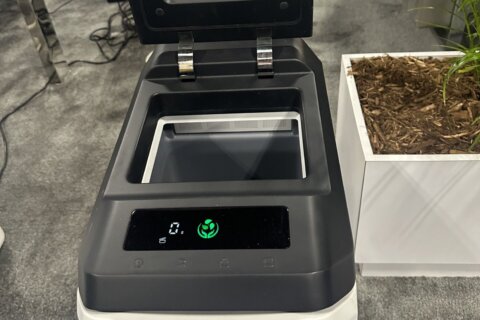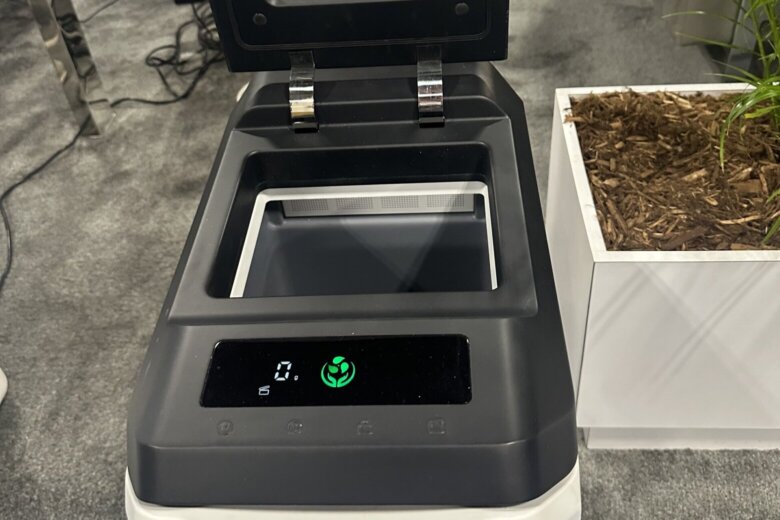
Food waste composting in the D.C. region is big business. While the District only recently rolled out a curbside composting program, most of the surrounding suburbs have been tackling the issue for years.
While curbside collection is fast becoming a standard, backyard composting has also emerged as viable way for consumers to reduce food waste from both the trash and recycling streams while providing an end product that homeowners and residents can use to enhance their gardens, flower beds and lawns.
The only problem is that it typically takes six to 12 months to produce a practical amount of compost.
Until today.
Thanks to a Belgian company called GEME, the Zero Waste Smart Composter transforms food prep and table scraps into sustainable, usable compost within 12 to 24 hours.
How?
By deploying intelligent automation to essentially replicate nature’s role in the composting processing through the use of organic microbes within an automated churn chamber that generates heat, accelerates decomposition and produces nutrient-rich soil conditioner — in hours instead of months.
“Our hardware does most of the work,” GEME Director Alex Yun said.
“When waste is added to the GEME composter, our organic microbial package quickly multiplies, breaking down food waste matter into basic components. The process generates heat, accelerating decomposition and producing the nutrient-rich soil conditioner that enhances soil health and plant growth, all within a period of six to 12 hours.”
While the original GEME product was released to the U.S. market in mid-2022, the company is now touting its revolutionary new design, the GEME Terra 2, scheduled for U.S. distribution in April.
“The next generation product will accept more than 12 pounds of food waste, which will ultimately yield a little over one pound of compost,” Yun said.
Plus, he said, the Terra 2 is a smaller, more compact unit designed to accelerate the composting process, thanks to advanced sensors and AI-powered features.
“The new product will offer a streamlined composting experience for people who want to make a positive environmental impact.”
The economic and environmental benefits, Yun said, actually transcend the product’s use in a purely home environment.
“By converting food scraps into valuable compost, our product supports sustainable farming practices by creating a recurring cycle where waste quickly becomes compost, which in turn produces better, richer soil, which creates an even better environment for crops and plants,” Yun said.
While that approach solves a problem of today, the company’s next venture promises to make an even greater impact.
“We are also capable of producing — on immediate demand — a commercial food composting product for use in restaurants and the food service industry capable of producing over 1,000 pounds of compost each day,” Yun said.
“This creates an environment where restaurants and farmers become part of a circular economy. Restaurants purchase organic product from farmers who typically purchase their own organic fertilizer. But since the restaurants can use the GEME commercial composter to create a product the farmers need, they can provide that fertilizer back to the growers, which will ultimately create savings for everybody. It essentially turns the restaurant into a compost producer, instead of a food waste producer.”
The commercial product, Yun said, can be custom ordered for short-term production and delivery.
Get breaking news and daily headlines delivered to your email inbox by signing up here.
© 2025 WTOP. All Rights Reserved. This website is not intended for users located within the European Economic Area.








